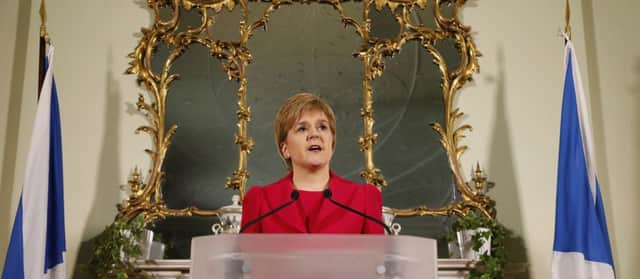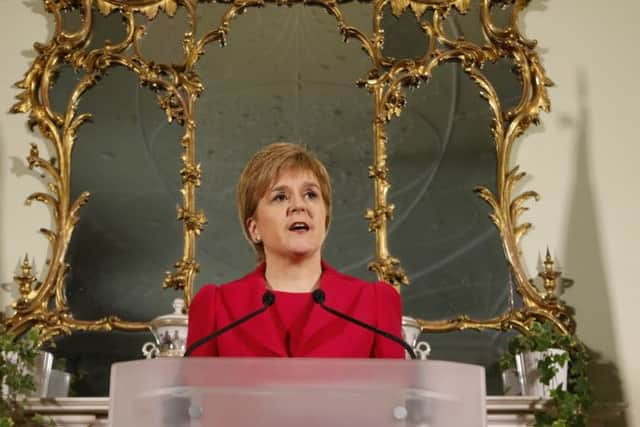Scottish income tax hike won't shrink revenue, says expert


Commissioner Alasdair Smith faced questions at Holyrood’s Finance Committee after the Scottish Government draft budget last week revealed plans to create a new five-band income tax system where people earning more than £33,000 annually face increased tax, while lower earners will see their tax bill fall.
The changes put 1p on the 45p top rate of tax and the commission has predicted a £53 million potential increase, cut by £31 million due to behavioural changes such as people moving their address for tax purposes.
Advertisement
Hide AdAdvertisement
Hide Ad

Commission chief executive John Ireland said a reason behind the reduction forecast is the opportunity for high earners to “rearrange their (tax) affairs” between Scotland and the rest of the UK to take advantage of the lower UK rate is “stronger”.
Committee convener Bruce Crawford asked if increasing income tax to 47p meant the government would be getting close to having a “negative” tax take from top rate payers.
Mr Smith said: “The static revenue raised from a 2p rate rather than a 1p rate would be higher.
“We haven’t done any analysis but there’s no reason to suppose that the behavioural effect is going to grow faster than the direct revenue, so it wouldn’t necessarily turn negative.”


A commission report has warned of a ‘’subdued outlook for economic growth’’ over the coming years, forecasting the Scottish economy will grow at less than 1% per year until 2022.
Neil Amner from the Scottish Chambers of Commerce also gave evidence to the committee and expressed concern the tax plan “creates the impression, at this stage only an impression, that Scotland is the highest taxed part of the UK”.
He said the different tax rates could be a “barrier” to attracting and retaining business and the organisation is concerned that this “could get worse through time”.
He said the changes would lead to “hidden costs” for businesses, “reinforce our skill shortage” and lead to a perception that “it’s more difficult, more expensive to do business in Scotland.”
Advertisement
Hide AdAdvertisement
Hide AdIPPR Scotland director Russell Gunson disagreed and said the tax changes at the current levels are “unlikely to lead to behavioural change”.
He said the income tax changes were not targeted to poorer earners and would benefit a “substantial amount” of second earners in higher income households.
Mr Gunson said the tax rises would not be sufficient to mitigate cuts in the long term.
An IPPR report following the budget indicated further income tax rises would be necessary to prevent cuts to public services.
Dave Moxham from the Scottish Trades Union Congress also criticised the tax changes, saying “tinkering about with the tax band at the lower level probably doesn’t do what it says on the tin”.
He said all public service workers should be given a pay rise in line with inflation and he did not believe the tax proposals are “ambitious” enough to meet that.
